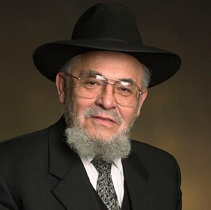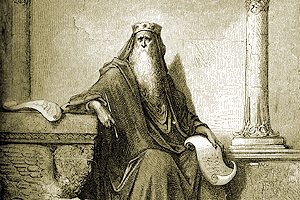I’m not exactly sure how this phenomenon started, but at some point, it became common for people to describe Hanukkah as a “minor” religious holiday. For just a handful of examples, Hanukkah has been described as a “minor” holiday by the Washington Post, The History Channel, Religion News Service, professors, and even several rabbis. The most common reason I have seen given for this description is that unlike other festivals Hanukkah imposes no restrictions on forbidden labor. But as Tzvi Freeman writes, the absence of such restrictions hardly implies that Hanukkah is “minor” by comparison.
I suspect one reason why people insist on calling Hanukkah “minor” is due to its disproportionate impact in America. A 2008 survey found 68% of American Jews view Hanukkah as, “one of the three most important holidays.” According to the 2000-2001 National Jewish population survey (p. 30), lighting Hanukkah candles is second only to holding a Passover Seder across all denominations.
 The relatively high levels of observance for Hanukkah across all denominations should not be surprising. Yes, it is a relatively simple ritual to perform, but also consider that annual holidays are observed at greater rates than recurring rituals. Lighting Shabbat candles sees a drastic dropoff among the non-Orthodox denominations despite being a similar religious ritual. Furthermore, there is the inevitable comparison to Christmas which dominates US culture and the desire to have one’s “own” holiday observance. I would also suggest that like Passover, the story of Hanukkah easily translates to a secular/universal context such that it appeals to a much wider range of Jews. Thus it is possible that precisely because Hanukkah is a “major” holiday in terms of popular recognition and observance that some feel a need to issue correctives relegating Hanukkah to a “minor” holiday in terms of religious significance.
The relatively high levels of observance for Hanukkah across all denominations should not be surprising. Yes, it is a relatively simple ritual to perform, but also consider that annual holidays are observed at greater rates than recurring rituals. Lighting Shabbat candles sees a drastic dropoff among the non-Orthodox denominations despite being a similar religious ritual. Furthermore, there is the inevitable comparison to Christmas which dominates US culture and the desire to have one’s “own” holiday observance. I would also suggest that like Passover, the story of Hanukkah easily translates to a secular/universal context such that it appeals to a much wider range of Jews. Thus it is possible that precisely because Hanukkah is a “major” holiday in terms of popular recognition and observance that some feel a need to issue correctives relegating Hanukkah to a “minor” holiday in terms of religious significance.
But whatever the reason why people insist on relegating Hanukkah to a “minor” Jewish holiday, I disagree with this categorization on the grounds that doing so dismisses an underappreciated aspect of Hanukkah as a holiday of rabbinic Judaism itself.
The “major” Jewish holidays to which people refer are of biblical origin, discussed in Leviticus 23 and elsewhere. Assuming one subscribes to biblical authority, these holidays are directly commanded by God to the Jewish people. Hanukkah, by contrast, is a holiday not commanded by God but instituted by the rabbinic sages.
As one might imagine, not everyone accepted the authority of the rabbinic sages even in their own time. My teacher, the late Dr. Ya’akov Elman ah”s, liked to cite the Amoraic example of the house of Binyamin the doctor who would ask, “What good have the rabbis done for us? They never permitted a raven and they never prohibited a dove” (Sanhedrin 99b-100a). Then, of course, there were various sectarians. When the rabbinic sages instituted the holiday of Hanukkah, they simultaneously asserted their religious authority. I will highlight a few examples.
The first is the rabbinic sages centering Hanukkah around the miracle in the Temple, in which the oil that was supposed to last for one day miraculously lasted for eight days (Shabbat 21b). While the Hasmonean victory is mentioned in passing, their military victory is omitted from being a cause of celebration. Considering the sages’ general antipathy towards the Hasmonean dynasty, this is to be expected.
Second, when the rabbinic created a new rabbinic obligation to light candles on Hanukkah, they included the obligation to recite a blessing over a commandment. The formula for such blessings is, “Blessed are You, Lord our God, King of the Universe, who has sanctified us through His commandments and commanded us to…” This invites the obvious question of when, where, and how God “commanded” the Jewish people to light the Hanukkah candles when they were clearly a rabbinic invention. The Talmud records two possibilities: according to R. Avya, the biblical source is Deut. 17:11 while R. Nehemia cites Deut. 32:7 (Shabbat 23a). In either case, by instituting the blessing over a commandment for a rabbinic enactment, the rabbinic sages reaffirm the biblical basis for rabbinic authority such that following their enactments is a fulfillment of a divine command.
Finally, we find an Amoraic rule that if a courtyard has two entrances on different sides one must light on both entrances. The Gemara considers this rule as a preventative measure for the homeowner to avoid suspicion. Someone who passes by the unlit entrance may assume the homeowner did not light at all, thereby rejecting rabbinic authority (Shabbat 23a). In this regard, one is not merely “publicizing the miracle” but publicizing one’s acceptance of rabbinic authority and allegiance to the system of rabbinic Judaism.
I have no illusions that those who light Hanukkah candles do so having in mind to affirm the rabbinic system as a whole. However, the holiday of Hanukkah is predicated on crucial assumptions regarding the authority and authenticity of the rabbinic interpretive and legislative tradition that continues to shape Judaism to this very day. In a way, Hanukkah is not just a celebration by rabbinic Judaism, it is a celebration of rabbinic Judaism.
Hanukkah might lack the same prohibitions as other Jewish festivals and it might have become overly commercialized and subject to other forms of assimilation. But for those who abide by the rabbinic tradition of Judaism, there is nothing “minor” about Hanukkah.




